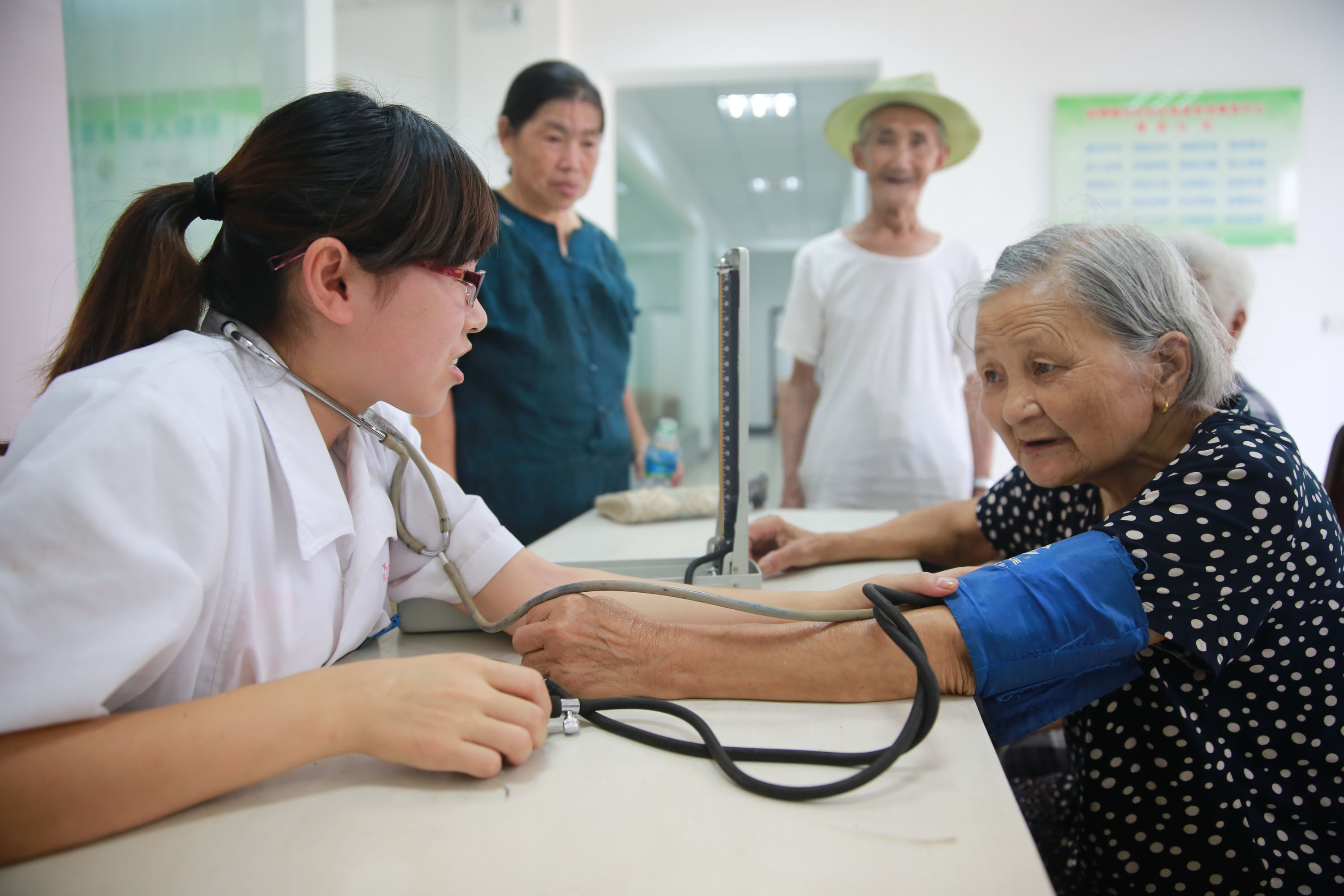Poverty, lack of affordable, safe housing, hunger and other social conditions all can affect both short-term and long-term health
WASHINGTON, DC and NEW YORK, NY (June 30, 2022) – A new report from the Geiger Gibson/RCHN Community Health Foundation Research Collaborative examines the extent to which community health centers are engaged in assessing patients for social determinants of health to help improve health outcomes. The Geiger Gibson/RCHN Community Health Foundation Research Collaborative is based at the George Washington University Milken Institute School of Public Health.
The new Data Note by the Collaborative analyzes 2020 data from the U.S. Department of Health and Human Services Uniform Data System, an annual nationwide reporting system that offers in-depth information about community health centers. The GW researchers explored community health center engagement in screening patients for social risk. Social determinants of health like poverty, poor nutrition, unsafe housing and other factors play a big role in poor health outcomes; identifying and addressing them are important to preventing illness and keeping people healthy. They found that three out of four or 75% of health centers in 2020 were collecting such data on their patients.
“Health centers have long served as a critical source of both primary care and broader services that help to mitigate adverse social risks, such as lack of housing and transportation,” Feygele Jacobs, the president and CEO of the RCHN Community Health Foundation, said. “The data provide a snapshot of the wide range of social needs and the opportunity to expand and strengthen screening and related services.
Other key findings of the report include:
- Nearly half (47%) of health centers reported using a standardized social risk screening tool to help identify patient health risks;
- Six in 10 health centers that reported collecting data on social risks also reported using a standardized screener.
- Health centers reported that nearly 790,000 patients screened positive for financial strain, nearly 500,000 patients said they had experienced food insecurity, 412,000 screened positive for housing insecurity and more than 300,000 said they lacked access to transportation or public transportation.
- Health centers engaged in social determinants of health assessments were more likely to be larger, urban centers located in Medicaid expansion states.
- Screening for social determinants of health appeared to pose a greater challenge for small health centers practicing in non-expansion states, where patients are at higher risk of poverty, financial strain and other risk factors for poor health.
The new report suggests that health centers need both grant support and a critical volume of Medicaid revenue to sustain the costs of collecting – and using - data on social determinants of health. Health centers that collect such data often have extra expenses, including hiring and training staff that can screen for the social risks. At the same time, the authors conclude that investing in social risk screening pays off because it can lead to improved patient and community health outcomes.
“Health centers are federally mandated to serve the most vulnerable communities and, thus, are optimally located and designed to have the greatest impact on social determinants of health,” Sara Rosenbaum, the Harold and Jane Hirsh Professor of Health Law and Policy at the GW Milken Institute School of Public Health, said. “Investments to improve health center access and quality benefit not just patients but also the communities they serve.”
The report, “Three in Four Community Health Centers are Engaged in Social Determinants of Health Activities. Making these Activities Universal Will Require Greater Investment and Payment Flexibility,” can be accessed here.
-GW-
The Geiger Gibson Program in Community Health Policy, established in 2003 and named after human rights and health center pioneers Drs. H. Jack Geiger and Count Gibson, is part of the Milken Institute School of Public Health at The George Washington University.
The RCHN Community Health Foundation is the only foundation in the U.S. dedicated solely to community health centers. The Foundation’s gift to the Geiger Gibson program supports health center research and scholarship.
The Milken Institute School of Public Health at the George Washington University is the only school of public health in the nation’s capital.


